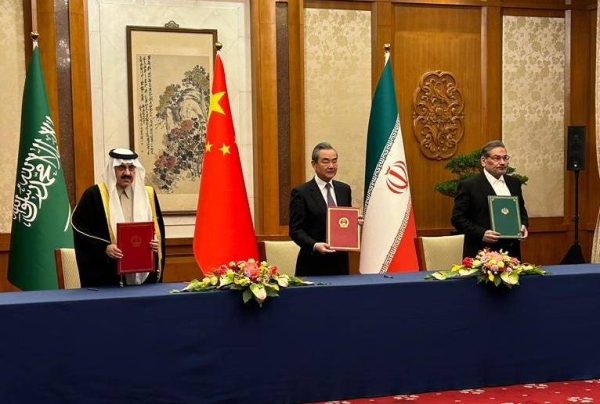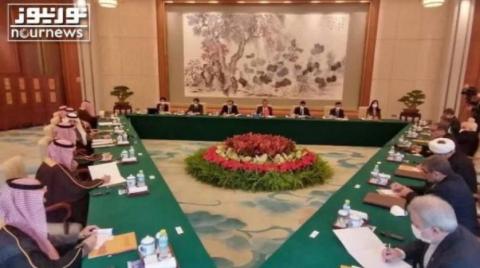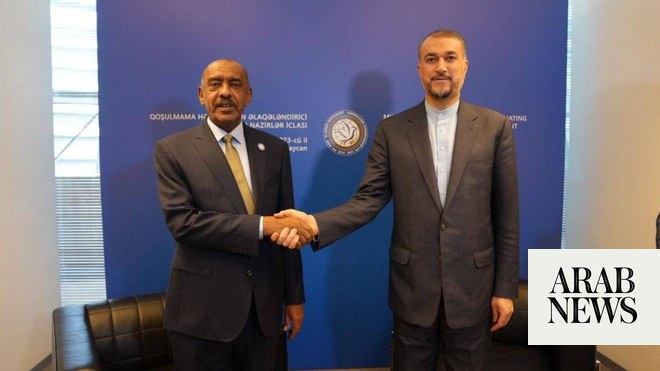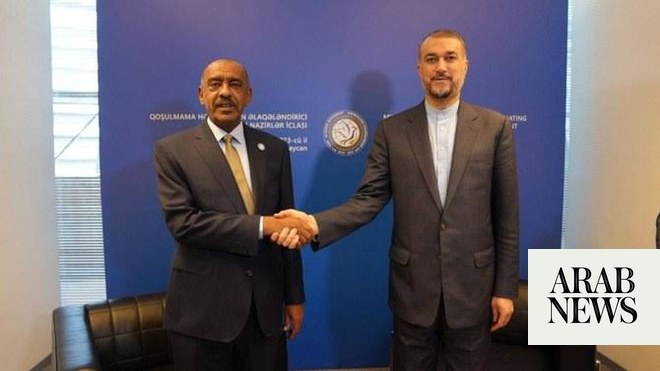
During their meeting in Moscow last month, King Hamad bin Isa Al-Khalifa of Bahrain discussed his country’s vision for relations with neighboring countries with Russian President Vladimir Putin. King Hamad emphasized that Bahrain is “considering fostering good relations with its neighbors in general.” He also stressed the importance of having “natural diplomatic, trade and cultural relations with neighboring countries.”
In this discussion about improving ties with neighboring nations, the Bahraini king was not only referring to the Gulf Cooperation Council countries or Iraq, but also openly referring to his country’s eastern neighbor, the Islamic Republic of Iran. Relations with Iran have been strained in recent years, with security and political concerns causing a diplomatic rift. King Hamad told President Putin on May 23: “We have good relations with all countries. Iran is the only one with which we will work to resolve issues and, in fact, there are no significant problems to mention.” The ruler of Bahrain expressed his wish for “progress in development, trade and overall quality of life.”
The Bahraini king’s open discussion with the Russian president shows that Manama wants to move on from its disagreements with Tehran. Diplomatic relations between the two countries were severed in January 2016.
Bahrain has always complained about Iran’s interference in its internal affairs, while Iran claims that it only expresses general political positions in support of the demands of the “Bahraini opposition.” However, the government in Manama sees this as interference in a local matter that Iran should not be involved in.
Restoring relations without addressing the root causes of the problems will result in the issues resurfacing
Hassan Al-Mustafa
Observers of the Bahraini-Iranian file consider it complex from a security perspective. To solve the problems, it is necessary to have open and honest discussions. Merely restoring relations without addressing the root causes will result in the issues resurfacing in the future.
Iran is home to several Bahraini opposition figures, some of whom have had their nationalities revoked, such as Sheikh Isa Qassim, a prominent Shiite cleric. Sheikh Isa has been recognized as one of the key figures in the so-called axis of resistance in recent times.
Iran also hosts leaders from the dissolved Al-Wefaq National Islamic Society, along with radical figures calling for violent change in Bahrain, such as the extremist cleric Murtadha Al-Sindi, one of the symbols of the Islamic Wafa Party, who publicly promotes the use of weapons in his speeches.
Manama claims that Tehran is sheltering wanted individuals and accuses the Revolutionary Guard of backing terrorist groups like Al-Ashtar Brigades and Al-Mukhtar Brigades.
This is one of the serious files that need to be resolved in order for diplomatic relations between the two countries to return to normal.
A source monitoring Bahraini-Iranian relations told me that “Iran is being stubborn (in this matter). Oman tried to facilitate a breakthrough in relations between Manama and Tehran, but Tehran did not change its positions.” The source added: “Iran wants Bahrain to release Shiite prisoners and allow the opposition to return and operate inside the country, in exchange for restoring relations between the two countries.”
Despite these complexities, there seems to be a strong desire in Bahrain to ‘zero out the problems’
Hassan Al-Mustafa
According to the source, Iran believes that “the Bahraini government will not accept this position because it sees it as interference in an internal affair. Bahrain cannot grant Iran undeserved privileges, as it would be a violation of the country’s sovereignty.”
Despite these complexities, there seems to be a strong desire in Bahrain to “zero out the problems.” Bahraini Foreign Minister Abdullatif Al-Zayani visited Iran last month and offered condolences on the death of President Ebrahim Raisi and his companions. Al-Zayani later emphasized Bahrain’s keenness to “establish normal relations with Iran based on good neighborliness and principles,” reflecting “the depth of the historical and cultural ties between the two peoples,” to “promote peace, coexistence and mutual benefit in a safe, stable and prosperous region.”
Iranian government spokesperson Nasser Kanaani stated that “Iran values its relations with Bahrain within its own framework,” adding that “messages are being exchanged and indirect talks are ongoing.”
The Iranian Mehr News Agency quoted acting Iranian Foreign Minister Ali Bagheri Kani as saying: “The policy of good neighborliness is necessary for stability and calm in the region, expanding economic cooperation and comprehensive dealings, and we believe that it is strategically binding for the entire region.” He added: “Our relations with Islamic countries are growing. Although we have not reached the required level with some Islamic countries in the region, the two sides seek to advance relations within the framework of the agreed-upon mechanism.”
Observers are monitoring the practical messages of Tehran’s strategy, which Kani mentioned toward the Arab Gulf countries, and Bahrain is one of them. The relationship between the two countries will enhance the credibility of this strategy, as Manama has openly presented its initiative and Tehran needs to respond and work toward improving relations and building trust for the stability and peace of the region.
Hassan Al-Mustafa is a Saudi writer and researcher interested in Islamic movements, the development of religious discourse and the relationship between the Gulf Cooperation Council states and Iran. X: @Halmustafa











